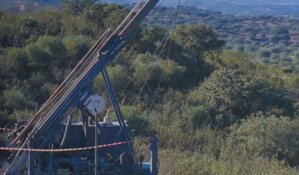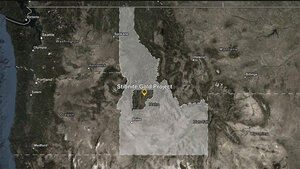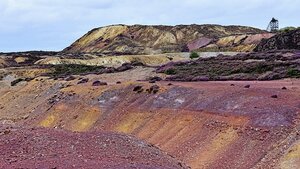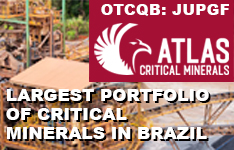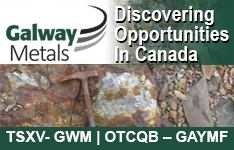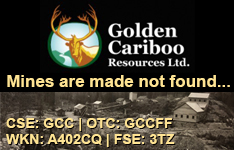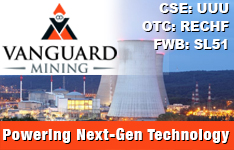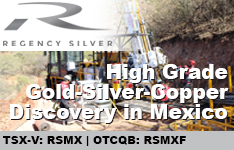Atlas Critical Minerals Corp. (JUPGF:OTCQB) has released preliminary metallurgical and exploration results from its Iporá Rare Earths Project in Goiás State, Brazil. The company reported strong recovery rates for magnetic rare earth elements from ionic clay mineralization, positioning the project as a notable development in the growing rare earths sector.
Initial drill results confirmed near-surface mineralization with high-grade intercepts, including 8 meters at 2,071 parts per million (ppm) of total rare earth oxides (TREO) and 775 ppm of magnetic rare earth oxides (MREO) in drillhole DHIP-0006. Peak grades within this hole reached 3,822 ppm TREO and 1,803 ppm MREO over one meter. Additional holes showed consistent mineralization, including drillhole DHIP-0002 with 11.4 meters at 1,650 ppm TREO and 468 ppm MREO.
Metallurgical testing using standard leaching conditions demonstrated TREO recovery of 36% and MREO recovery exceeding 60%. Heavy rare earth oxides (HREO) and yttrium also performed well, with recovery rates of 55% and 63%, respectively. The company noted that such results were obtained using conservative processing assumptions, with optimization studies underway to enhance recoveries.
The Iporá Project spans 18,615 hectares across 12 mineral rights and targets ionic clay-hosted rare earth deposits similar to those found in southern China. Initial fieldwork included geological mapping, surface sampling, and auger drilling, which collectively confirmed favorable geological conditions associated with the Iporá Granite and Goiás Alkaline Province.
According to Atlas Critical Minerals, the project's strategic location in Goiás provides logistical benefits and proximity to the Serra Verde rare earth processing facility, one of the few operations of its kind outside Asia. The results will be incorporated into a Technical Report Summary under U.S. Regulation S-K 1300, being prepared by SGS Canada Inc. ("SGS"), with Marc-Antoine Laporte designated as the Qualified Person. SGS is a premier, global enterprise in the evaluation of mineral properties.
The company views the Iporá results as complementary to its Alto do Paranaíba Project in Minas Gerais State, which features high-grade conglomerate-hosted mineralization. Together, the two Brazilian assets diversify Atlas Critical Minerals' rare earth portfolio by combining different geological styles and processing routes.
Geopolitical Pressures and Supply Chain Instability Reshape Rare Earths Industry
According to a September 9 article from OilPrice.com, the U.S. government committed US$5 million to support the Carina rare earth project in Brazil, focusing on an ionic clay deposit containing heavy rare earth elements. The funding was expected to accelerate feasibility work and was described as targeting "exactly the type of heavy rare earth source the West badly needs to offset China’s near-monopoly." The article also reported that the Rare Earths Monthly Metals Index rose 2.15% month-over-month, with neodymium prices increasing 26.87% to US$87,214 per metric ton and praseodymium-neodymium oxide rising 15.45% to US$72,256.87 per metric ton.
Price volatility remained a key concern for downstream industries. OilPrice.com noted that "neodymium-iron-boron magnets, which rely on NdPr, are required to power everything from EV motors to wind turbines and fighter jet actuators." Although Chinese prices for NdPr oxide had eased slightly after a late-August spike, they remained well above early summer levels, prompting contingency strategies such as dual sourcing and stockpiling among OEMs. The article also described a U.S. government initiative to support a US$110/kg price floor for NdPr, which it said "effectively establishes a new higher baseline for Western producers."
At the same time, Chinese export controls continued to disrupt international trade. In a September 16 article, FT.com reported that European companies were experiencing renewed delays in obtaining rare earth export licenses from China. Jens Eskelund, president of the EU Chamber of Commerce in China, stated, "We have a number of members who are right now suffering significant losses because of these bottlenecks." Of more than 140 export license applications submitted by EU firms since April, only about one-quarter had been resolved. Although European leaders had visited Beijing in July and received commitments from Chinese authorities to address the issue, the delays reportedly worsened again in September. Eskelund emphasized, "This has not gone away."
According to the Australian ABC on September 16, China continued to control "around 90% of the global processing and production capacity for rare earths." The article described magnetic rare earths as "the invisible main characters of our modern world," essential for advanced defense and energy technologies. Naoise McDonagh, an expert in geopolitics and trade at Edith Cowan University, stated, "If we do not have an independent supply chain for rare earths, Australia may not be able to access the defense equipment it needs in an incredibly volatile period."
Strategic Ownership and Project Synergies Backed by Positive Ratings
Analysts have maintained a favorable view of Atlas Lithium Corp. (ATLX:NASDAQ), the majority owner of Atlas Critical Minerals, citing strong project economics, strategic alignment, and advancing development timelines. In a July 14 research note, H.C. Wainwright & Co. analyst Heiko Ihle reaffirmed a Buy rating on Atlas Lithium and listed the company as one of the firm's "Top Picks for 2025." Ihle set a price target of US$18 per share, reflecting a potential 349% return from the US$4.01 share price at the time of publication. He wrote, "With Atlas' low-cost operations nearing first production, we believe that the company is well-positioned to generate strong long-term returns and provide valuable geopolitical diversification."
Ihle cited the company's operating cost of US$489 per ton of lithium concentrate and highlighted US$80 million in offtake and investment agreements supporting its 150,000-ton Phase 1 production and proposed 300,000-ton Phase 2 expansion. He also pointed to the formation of Atlas Critical Minerals as a complementary platform to Atlas Lithium's flagship Neves project. "This project complements the firm's Neves project, as we expect the near-term cash flow to support Atlas' long-term strategy of becoming a leading player in global energy transition," Ihle wrote.
On August 5, Alliance Global Partners analyst Jake Sekelsky also reiterated a Buy rating on Atlas Lithium following the release of the company's definitive feasibility study (DFS) for the Neves project. The firm maintained a US$20 price target, representing a 254% potential return from the US$5.65 share price at the time. Sekelsky described the DFS as "an inflection point on the road to lithium production," and emphasized the project's low capital expenditure requirement of US$58 million and strong economic metrics.
According to the report, the DFS outlined a net present value (NPV) of approximately US$540 million and an internal rate of return (IRR) of 145% using an SC5.5 price of US$1,700 per ton. Even at a more conservative price of US$1,200 per ton, the NPV was reported at US$260 million, more than double Atlas Lithium's enterprise value at the time. Sekelsky stated that Atlas had already invested US$30 million into development, with an existing US$40 million prepayment facility expected to fund most of the remaining capital requirements.
He concluded, "The limited capex remaining coupled with Neves' status as a shovel-ready project places Atlas in pole position to become the next lithium producer in Brazil's lithium valley," and added that the modular processing design provided flexibility for future expansion.
 Streetwise Ownership Overview*
Streetwise Ownership Overview*
Atlas Critical Minerals Corp. (JUPGF:OTCQB)
Steps Toward a Diversified Rare Earths Platform
Atlas Critical Minerals has continued to position itself as a multi-asset developer in Brazil's emerging rare earths industry. The company continued to advance its Iporá Project with preliminary metallurgical testing and high-grade intercepts that confirmed near-surface ionic clay-hosted mineralization. The company also noted the project's strategic location near the Serra Verde rare earths processing facility, one of the few outside Asia. Additional drilling and optimization studies are underway, with results to be included in an S-K 1300-compliant technical report.
As global supply chains respond to geopolitical tensions and rising demand for rare earths, companies like Atlas Critical Minerals stand to benefit from developing assets in jurisdictions with established infrastructure, experienced labor, and proximity to downstream processing.
Ownership and Share Structure
According to the company, about 30% of Atlas Critical Minerals is owned by insiders and management.
30% is held by Atlas Lithium. The rest is institutions and retail.
Its market cap is ~US$44.6 million with 38.9 million shares outstanding. It trades in a 52-week range of US$0.40 and US$2.65.
| Want to be the first to know about interesting Critical Metals investment ideas? Sign up to receive the FREE Streetwise Reports' newsletter. | Subscribe |
Important Disclosures:
- Atlas Critical Minerals and Atlas Lithium are a billboard sponsor of Streetwise Reports and pay SWR a monthly sponsorship fee between US$3,000 and US$6,000.
- As of the date of this article, officers and/or employees of Streetwise Reports LLC (including members of their household) own securities of Atlas Critical Minerals and Atlas Lithium.
- James Guttman wrote this article for Streetwise Reports LLC and provides services to Streetwise Reports as an employee.
- This article does not constitute investment advice and is not a solicitation for any investment. Streetwise Reports does not render general or specific investment advice and the information on Streetwise Reports should not be considered a recommendation to buy or sell any security. Each reader is encouraged to consult with his or her personal financial adviser and perform their own comprehensive investment research. By opening this page, each reader accepts and agrees to Streetwise Reports' terms of use and full legal disclaimer. Streetwise Reports does not endorse or recommend the business, products, services or securities of any company.
For additional disclosures, please click here.


